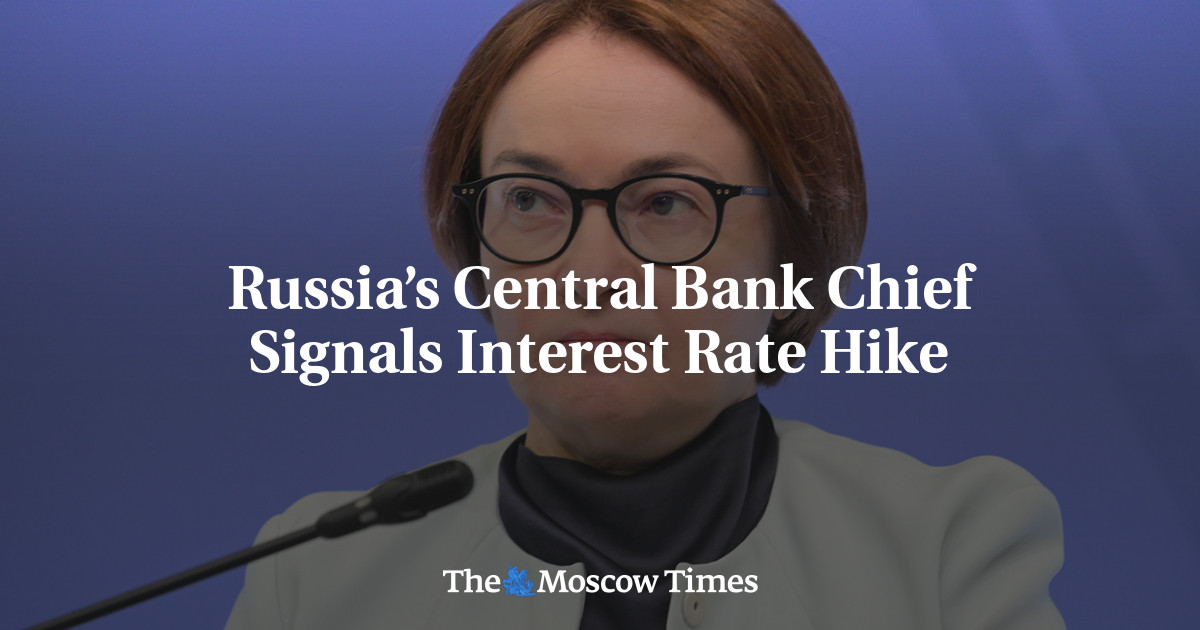
Russia’s central bank chief said Thursday that inflation was running ahead of expectations and hinted the bank was likely to hike interest rates later this month.
Prices have risen fast in Russia since it launched its full-scale invasion of Ukraine in February 2022. Since then, the Kremlin has massively ramped up spending on its army and arms producers.
The surge in public expenditure, combined with record labor shortages in many sectors, has created an inflationary spiral that has gripped the country over the last year.
“In July the discussion of a rate hike will be on the agenda,” Governor Elvira Nabiullina told reporters in a televised news conference Thursday.
“I think the main subject of discussion will be the step of the rate hike,” she added, suggesting a hike was a foregone conclusion, with the extent of the rise the only remaining question.
Russia’s key interest rate is currently fixed at 16% after a series of hikes last year designed to tame price rises and stop a devaluation in the value of the ruble.
But inflation was still running at 8.3% on an annual basis in May, far ahead of the bank’s official 4.0% target.
The bank’s next rate-setting meeting will be on 26 July.
Available data showed that inflation had “deviated to a significant extent” from the bank’s previous forecasts, Nabiullina said.
The head of the central bank is one of President Vladimir Putin’s most important economic officials.
She has been credited at home – and criticized in the West – for helping to keep the Russian economy afloat amid a barrage of sanctions that threatened to push Moscow into a deep and protracted recession.
But huge funding measures for the war in Ukraine have flooded the economy with cash, boosting growth but also fuelling inflation.
Nabiullina also said Thursday that Russia was experiencing more problems with international payments, which the United States has targeted in its latest sanctions packages.
“The situation with cross-border payments has become more complicated recently,” Nabiullina said.
This too, was an inflationary factor, she said, as it drove up transaction costs for importers.
Washington has threatened foreign banks with secondary sanctions if they provide services to sanctioned Russian companies or help finance the import of banned goods into the country.